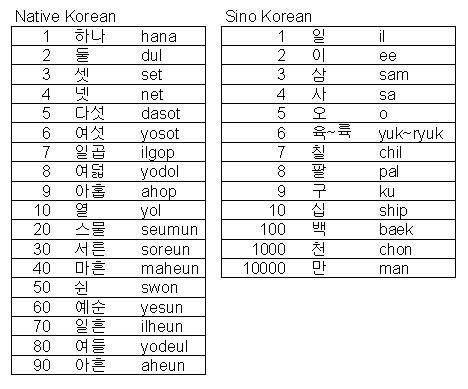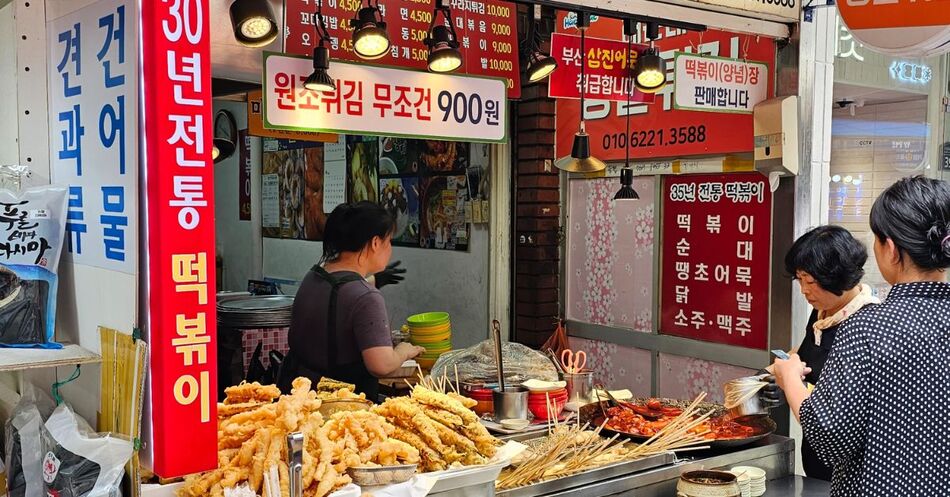Common Korean Words and Phrases for Greetings and Introductions
Mastering common Korean words and phrases in greetings is your first step to building meaningful connections and showing respect in Korean social interactions.
Basic Greetings

- Hello – 안녕하세요 (annyeonghaseyo)
- Good morning – 좋은 아침이에요 (joeun achimieyo)
- Good evening – 안녕하세요 (annyeonghaseyo)
- Good night – 안녕히 주무세요 (annyeonghi jumuseyo)
- Hi (informal) – 안녕 (annyeong)
- Have a nice day – 좋은 하루 보내세요 (joeun haru bonaeseyo)
- How are you? – 어떻게 지내세요? (eotteoke jinaeseyo?)
Introducing Yourself

- My name is… – 제 이름은…입니다 (je ireumeun…imnida)
- Nice to meet you – 만나서 반갑습니다 (mannaseo bangapseumnida)
- Pleased to meet you (formal) – 처음 뵙겠습니다 (cheoeum boepgetseumnida)
- What is your name? – 이름이 뭐예요? (ireumeun mwoyeyo?)
- I’m from… – 저는 …에서 왔어요 (jeoneun …eseo wasseoyo)
- I am a student – 저는 학생이에요 (jeoneun haksaeng-ieyo)
- I work as… – 저는 …로 일해요 (jeoneun …ro ilhaeyo)
See more: Learn Korean Quickly
Common Korean Words and Phrases for Essential Courtesy Phrases
Politeness is always appreciated in any culture, especially in an Asian country like Korea. These common Korean words and phrases will help you navigate social interactions gracefully and respectfully.
Polite Expressions

- Please – 주세요 (juseyo)
- Thank you – 감사합니다 (gamsahamnida) / 고맙습니다 (gomapseumnida)
- You’re welcome – 천만에요 (cheonmaneyo)
- Excuse me (to get attention) – 저기요 (jeogiyo)
- Excuse me (to pass through) – 실례합니다 (sillyehamnida)
- I’m sorry – 죄송합니다 (joesonghamnida) / 미안합니다 (mianhamnida)
- Yes – 네 (ne)
- No – 아니요 (aniyo)
- I understand – 이해했어요 (ihaehaesseoyo)
- I don’t understand – 이해 못했어요 (ihae mothaesseoyo)
Common Korean Words and Phrases for Numbers and Counting
Understanding Korean numbers is essential for everyday transactions and communication. Here are the most common Korean words and phrases to count from one to ten.
Sino-Korean Numbers

- One – 일 (il)
- Two – 이 (i)
- Three – 삼 (sam)
- Four – 사 (sa)
- Five – 오 (o)
- Six – 육 (yuk)
- Seven – 칠 (chil)
- Eight – 팔 (pal)
- Nine – 구 (gu)
- Ten – 십 (sip)
Native Korean Numbers

- One – 하나 (hana)
- Two – 둘 (dul)
- Three – 셋 (set)
- Four – 넷 (net)
- Five – 다섯 (daseot)
- Six – 여섯 (yeoseot)
- Seven – 일곱 (ilgop)
- Eight – 여덟 (yeodeol)
- Nine – 아홉 (ahop)
- Ten – 열 (yeol)
Common Korean Words and Phrases for Time and Dates
Knowing how to discuss time and dates with these common Korean words and phrases will help you schedule meetings and understand daily conversations.
Days of the Week

- Monday – 월요일 (woryoil)
- Tuesday – 화요일 (hwayoil)
- Wednesday – 수요일 (suyoil)
- Thursday – 목요일 (mogyoil)
- Friday – 금요일 (geumyoil)
- Saturday – 토요일 (toyoil)
- Sunday – 일요일 (ilyoil)
Months and Seasons

- January – 1월 (ilwol)
- February – 2월 (iwol)
- March – 3월 (samwol)
- Spring – 봄 (bom)
- Summer – 여름 (yeoreum)
- Autumn – 가을 (gaeul)
- Winter – 겨울 (gyeoul)
Common Korean Words and Phrases for Common Questions and Responses
With these Korean common phrases, it will be much easier for you to deal with any chats with the locals. Your everyday conversations will flow more naturally.
Everyday Inquiries

- What is this? – 이것은 뭐예요? (igeoseun mwoyeyo?)
- What time is it? – 몇 시예요? (myeot siyeyo?)
- Where is the bathroom? – 화장실 어디예요? (hwajangsil eodiyeyo?)
- Where are you from? – 어디에서 오셨어요? (eodieseo osyeosseoyo?)
- Do you have Wi-Fi? – 와이파이 있어요? (waipai isseoyo?)
- What’s the weather like today? – 오늘 날씨 어때요? (oneul nalssi eottaeyo?)
Common Korean Words and Phrases for Dining and Food
Food-related phrases will enhance your culinary experiences in Korea. So this is a chance for you to note down these common Korean words and phrases when you need to grab something.
Ordering Food

- I want to order – 주문하고 싶어요 (jumunhago sipheoyo)
- Menu, please – 메뉴 주세요 (menyu juseyo)
- I’d like this, please – 이거 주세요 (igeo juseyo)
- What do you recommend? – 추천해 주세요 (chucheonhae juseyo)
- Is this spicy? – 이거 매워요? (igeo maewoyo?)
- Can I get a refill? – 리필 가능해요? (ripil ganeunghaeyo?
- One more, please – 하나 더 주세요 (hana deo juseyo)
- Can I have some water, please? – 물 주세요 (mul juseyo)
- The bill, please – 계산서 주세요 (gyesanseo juseyo)
- Can I pay by card? – 카드로 결제할 수 있어요? (kadeuro gyeoljaehal su isseoyo?)
Dietary Preferences

- I’m vegetarian – 저는 채식주의자예요 (jeoneun chaesikjuuijayeyo)
- No meat – 고기 없이 (gogi eobsi)
- Spicy – 매운 (maeun)
- Not spicy – 안 매운 (an maeun)
- I’m allergic to (ingredient) – (재료) 알레르기가 있어요 ((jaeryo) allereugiga isseoyo)
- Please make it less spicy – 덜 맵게 해 주세요 (deol maepge hae juseyo)
- Do you have vegetarian options? – 채식 메뉴 있어요? (chaesik menyu isseoyo?)
- Does this have seafood? – 이거 해산물 들어 있어요? (igeo haesanmul deureo isseoyo?)
- Can you remove the meat? – 고기 빼고 주세요 (gogi ppaego juseyo)
- Do you have anything without nuts? – 견과류 없는 음식 있어요? (gyeongwaryu eomneun eumsik isseoyo?)
Common Korean Words and Phrases for Transportation and Directions
These Korean common phrases will make getting around and using public transportation in Korea a breeze. With just a little practice, getting from one place to another in Korea will become second nature!
Navigational Phrases

- Where is (place)? – (장소) 어디예요? ((jangso) eodiyeyo?)
- How do I get to (place)? – (장소) 어떻게 가요? ((jangso) eotteoke gayo?)
- Is it far from here? – 여기서 멀어요? (yeogiseo meoreoyo?)
- Is it close? – 가까워요? (gakkawoyo?)
- Can you show me on the map? – 지도에서 보여 주세요 (jidoeseo boyeo juseyo)
- Which way should I go? – 어느 방향으로 가야 해요? (eoneu banghyangeuro gaya haeyo?)
- Is there a subway station nearby? – 근처에 지하철역 있어요? (geuncheoe jihacheollyeok isseoyo?)
- Does this bus go to (place)? – 이 버스 (장소) 가요? (i beoseu (jangso) gayo?)
- How much is the fare? – 요금 얼마예요? (yogeum eolmayeyo?)
- I think I’m lost – 길을 잃은 것 같아요 (gireul ireun geot gatayo
Common Korean Words and Phrases for Shopping and Transactions
Are you looking for an easy way to shop and pay in the Korean language? Great! These common Korean words and phrases will have you navigating the whole process like you’ve been doing it forever.
Bargaining and Purchasing

- How much is this? – 이거 얼마예요? (igeo eolmayeyo?)
- Can you give me a discount? – 깎아 주세요 (kkakka juseyo)
- That’s too expensive – 너무 비싸요 (neomu bissayo)
- Do you have a cheaper one? – 더 싼 거 있어요? (deo ssan geo isseoyo?)
- Can you lower the price? – 좀 깎아주세요 (jom kkakajuseyo)
- I want to buy – 사고 싶어요 (sago sipheoyo)
- I’ll take it – 이거 살게요 (igeo salgeyo)
- Do you take credit cards? – 카드 되나요? (kadeu doenayo?)
- Is there a sale? – 세일 중이에요? (seil jung-ieyo?)
- I’m just looking – 그냥 보고 있어요 (geunyang bogo isseoyo)
Booking a Hotel

- Do you have any rooms available? – 빈 방 있어요? (bin bang isseoyo?)
- I’d like to book a room – 방 예약하고 싶어요 (bang yeyakhago sipeoyo)
- Do you have a single/double room? – 싱글룸/더블룸 있어요? (singgeulrum/deobeulrum isseoyo?)
- How much is a night? – 1박에 얼마예요? (ilbake eolmayeyo?)
- Is breakfast included? – 조식 포함이에요? (josik poham-ieyo?)
- Do you have Wi-Fi? – 와이파이 있어요? (waipai isseoyo?)
- I’d like to check in, please – 체크인 해 주세요 (chekeuin hae juseyo)
- I’d like to check out, please – 체크아웃 해 주세요 (chekeaut hae juseyo)
- Can I have a late check-out? – 늦은 체크아웃 가능해요? (neujeun chekeaut ganeunghaeyo?)
- Can I see the room first? – 방을 먼저 볼 수 있어요? (bangeul meonjeo bol su isseoyo?)
Conclusion
These common Korean words and phrases will boost your confidence in everyday conversations and help you connect with Korean speakers more easily. Keep practicing, and soon, speaking Korean will feel natural! Want to take your learning further? Join GuruLango for more Korean language tips and lessons!